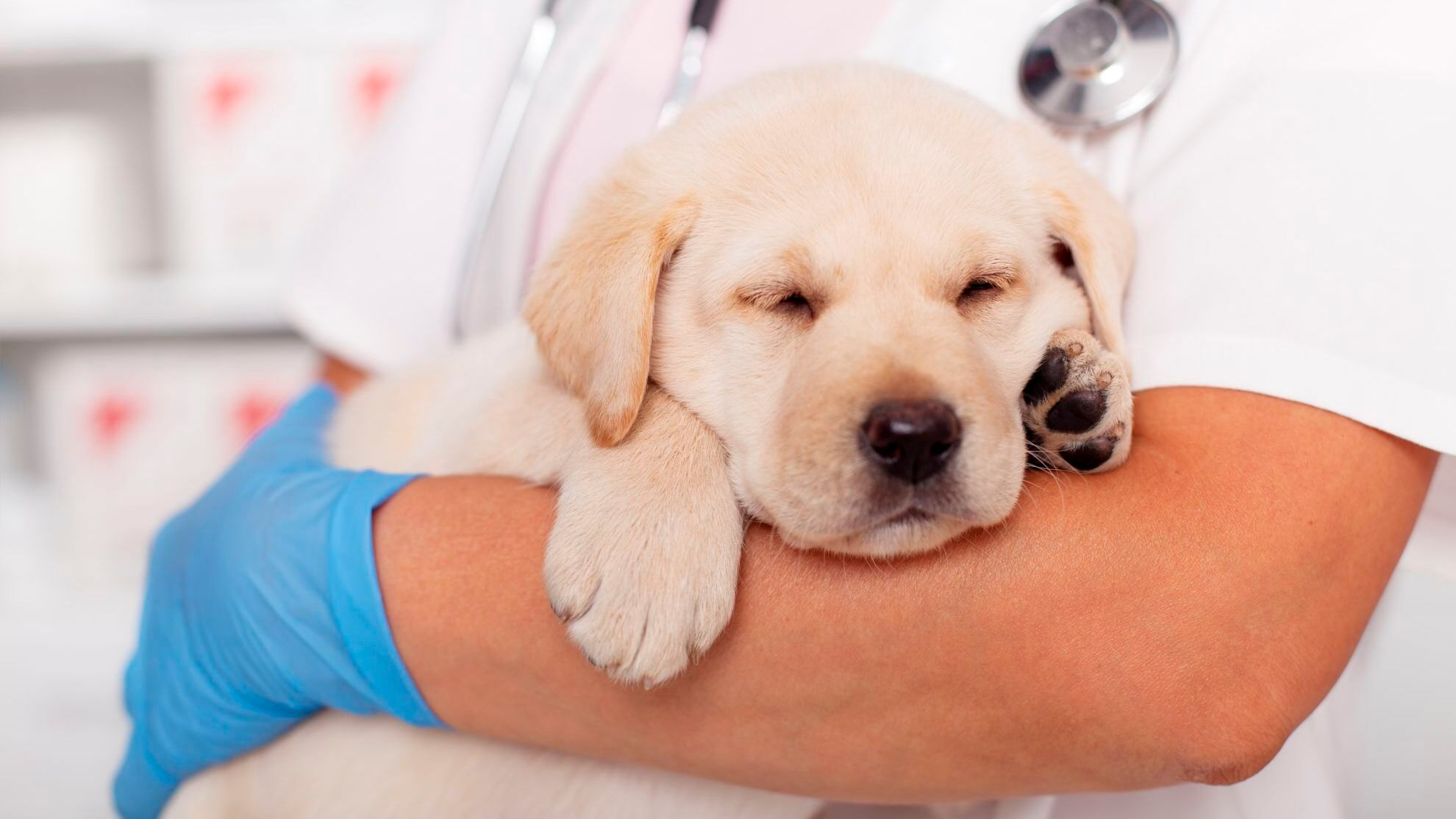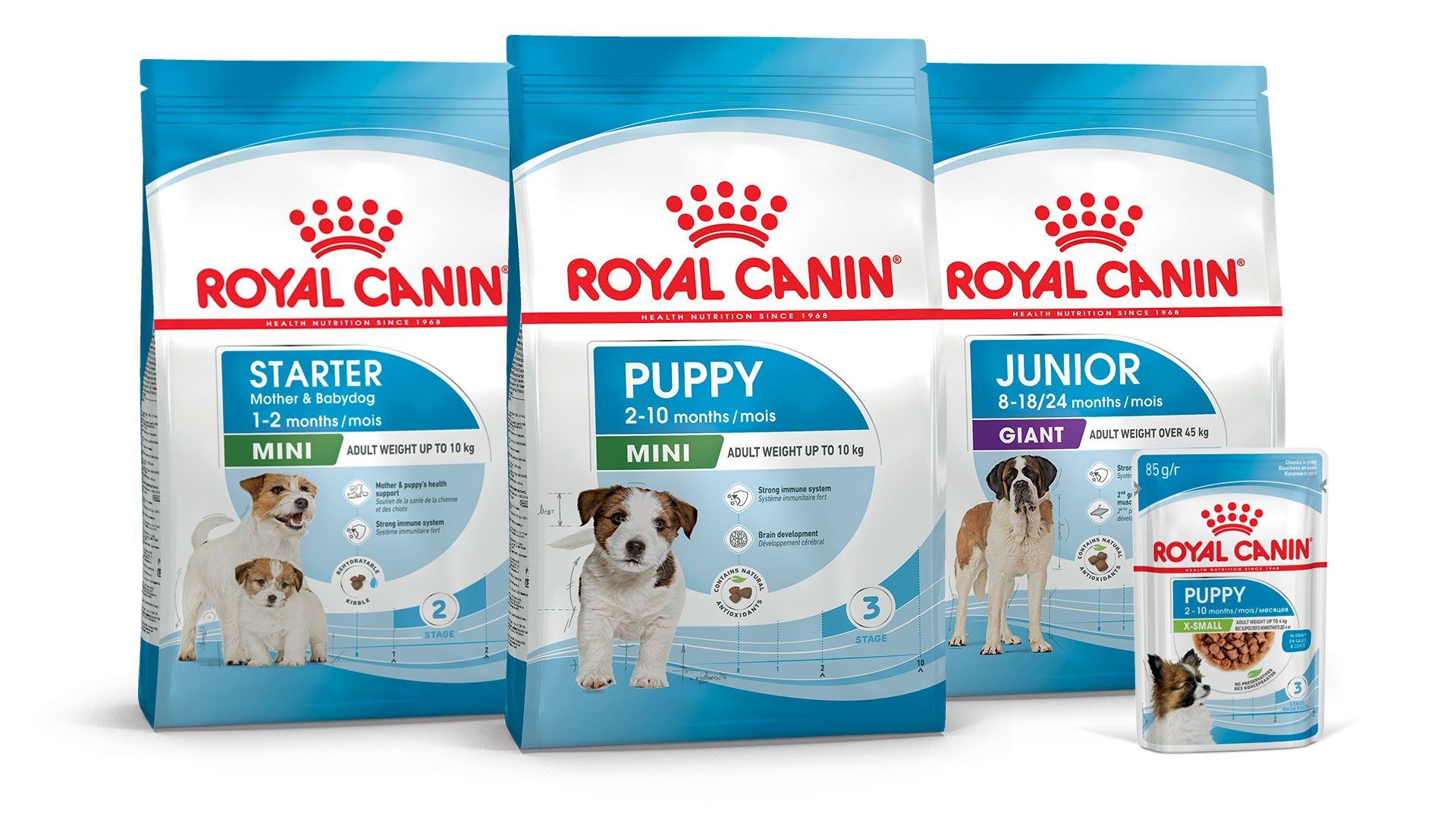
Vets play a key role in your dog’s health
Your new puppy or dog's first vet visit should happen soon after you welcome them home.
Responsible breeders and animal shelters will have already carried out health checks on your dog or puppy. But the sooner they’re acquainted with a vet, the better.
Your vet is the person who can answer all your questions and help to keep your dog in good health. With time, they will know your dog’s health history intimately and have established a relationship with them. This will help in swiftly diagnosing and treating any future possible illnesses.
No first visit surprises, please
It’s a good idea to find a vet and schedule the appointment in advance of picking up your new puppy or dog. Perhaps you already have one on speed dial, thanks to a current or previous pet.
If not, do some research in advance and be sure to visit or call the practice. This will help you to get a feel of the environment and staff.
- Is it clean?
- Are people welcoming?
- Do they have good reviews?
On your first visit, be sure to take all relevant medical records with you. These will be used to create your dog or puppy’s medical file.
Let’s find the most adapted food!
Answer a few questions about your dog to discover a personalised food recommendation.
How to prepare your puppy or dog for their first vet visit?
It is important to help your new four-legged family member feel positive about the vet. Whether your pet is adopted or not, you should take the same care in your approach.
Here are four ways to properly prepare your pet for their first vet visit.
Check with the clinic that you can drop by with your pet ahead of their appointment. A calm period is optimal to minimise any anxiety for your dog or puppy. If they are familiar with the clinic, they should feel calm on check-up day.
Will you travel by foot, in the car or on a bike? Practise beforehand. Take your dog or puppy on a short outing, such as a quiet park. This will help them to understand that leaving the house is nothing to be anxious about.
If travelling by car, equip yourself with a dog crate or dog carrier bag, so that your pet is safe and secure while travelling. Introduce your pet to the crate or bag prior to the first vet appointment. You want to acclimatise them to the object so that they have a positive association.
You’ve successfully got your dog to the vet clinic, with no aggression or upset. But there may be other obstacles, such as the presence of other animals or a longer waiting time than anticipated. So, be sure to keep your puppy or dog on a lead.
Observe your puppy or dog’s behaviour in order to adapt accordingly. Here are a few more things that can help:
- Bring your puppy or dog’s favourite blanket and a much-loved toy
- Settle down in a quiet part of the room
- Observe your dog or puppy’s body language
- Stay calm
- Talk to your pet if they need reassuring
Now is the time to ask the vet any questions you have about your puppy or dog. As a responsible pet owner, the vet will be your strongest ally in keeping your puppy’s health stable. Give them as much information as possible, so that they have as clear a picture of your pet.
They will also be on hand to keep your dog or puppy calm during their first check-up. If there is an accidental pee, or a bit of aggression, remember to stay relaxed and soothe your pet. This can be an overwhelming experience at any age, no matter how much you’ve both prepared for it.
How your dog or puppy will be examined
During your pet’s first check-up, the vet may do the following:
- Weigh your puppy or dog
- Listen to their heart and lungs
- Take their temperature (this can be done rectally)
- Look at their teeth and gums
- Check their eyes, ears, nose and feet
- Check their skin and fur
- Examine their lymph nodes and abdomen
- This one isn’t always carried out but some vets may want to examine a stool sample, to see if worms are present
Once the check-up is complete, feel free to ask the vet any questions you may have concerning your new dog or puppy.
Be sure you fully understand how to administer any medication or treatments that the vet sends you home with.
Don’t forget to book a follow-up appointment for the required vaccinations for your puppy or dog.

Our Puppy Growth Programme nutritional recommendations
Our products are designed to accompany your puppy’s growth, helping provide meaningful benefits thanks to specifically chosen nutrients for each stage of life.

Be proactive with a preventative care approach
There’s no fixed rule as to how often you should take your dog to the vet. It can depend on several factors, including age, breed specifics, lifestyle and general health.
Find a vet
If your puppy's health seems unusual or is concerning, it is always advisable to consult a vet.